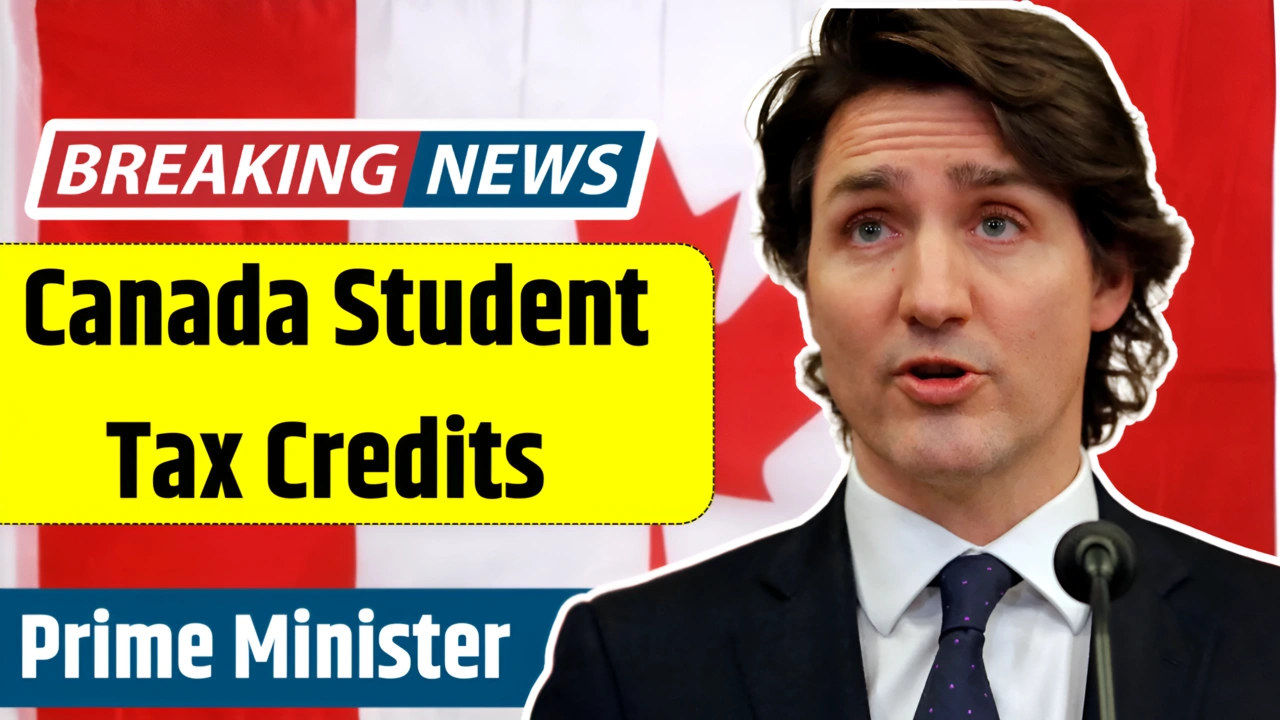Canada has long been recognized for its strong commitment to education and supporting its students. In 2025, with the arrival of a new Prime Minister, significant changes are expected to the country’s tax policy, particularly when it comes to student tax credits. This article will explore what students and families can expect under the new leadership, including updates on tax credit eligibility, potential reforms, and how the new policies may benefit the next generation of Canadian learners.
The Importance of Student Tax Credits in Canada
Student tax credits in Canada are an essential part of the financial support system for students pursuing post-secondary education. These tax credits are designed to ease the financial burden of tuition fees, textbooks, and other education-related expenses. For years, they have provided a much-needed cushion for students who face the challenge of managing educational costs while balancing part-time work and other financial obligations.
Tax credits for students generally work by reducing the amount of income tax owed, either in the form of direct deductions or refunds. In Canada, there are several types of student tax credits, including the Tuition Tax Credit, the Education and Textbook Tax Credits, and the Student Loan Interest Tax Credit. These credits play a vital role in helping students afford education and reduce the financial barriers to pursuing higher learning.
The Impact of a New Prime Minister on Student Tax Credits
With the election of a new Prime Minister in 2025, Canadians are expecting significant shifts in policy, including the student tax credit system. The new leader has indicated a commitment to reforming education funding and making it more accessible for all students, regardless of their socio-economic background.
One of the central goals under the new government is to ensure that education remains affordable and accessible for students across the country. This could mean increases in the value of existing tax credits, expansions to eligibility criteria, and even the introduction of new financial support mechanisms to aid students in managing the cost of education.
Expected Changes to Student Tax Credits for 2025
While specific details regarding the changes to student tax credits in 2025 will depend on the Prime Minister’s forthcoming budget and policies, there are several areas where students can expect to see potential improvements. Here are the key areas that are likely to be impacted:
Increase in the Tuition Tax Credit
One of the most important changes expected is a potential increase in the Tuition Tax Credit. Currently, the credit allows students to claim a percentage of their tuition fees as a non-refundable tax credit. The new government is considering expanding this benefit, making it more generous for students who face high tuition fees. This increase could especially benefit students in professional programs or those attending private institutions, where tuition fees can be significantly higher than at public universities.
Expanded Eligibility for the Education and Textbook Tax Credits
Historically, the Education and Textbook Tax Credits have been used to offset the cost of purchasing textbooks and attending post-secondary education. Under the previous government, these credits were gradually phased out, but the new leadership may decide to reintroduce them or create a new version. This could involve higher rates of reimbursement for textbooks, course materials, and other education-related expenses, helping to reduce the financial strain on students.
Introduction of Family-based Tax Benefits
One of the more exciting developments under the new Prime Minister’s leadership could be the introduction of family-based tax benefits aimed at supporting students from lower-income backgrounds. This initiative would focus on providing additional support for families with dependent students, particularly those who are struggling to cover the costs of post-secondary education. The government may offer enhanced credits for parents or guardians to help offset the rising costs of tuition and other education-related expenses.
Student Loan Interest Tax Credit Reform
The Student Loan Interest Tax Credit has long been a crucial tool for students who have taken out government loans to finance their education. This credit allows borrowers to claim a percentage of the interest paid on their student loans, reducing the amount of income tax they owe. In 2025, the new government is expected to introduce reforms to this program, making it more generous and accessible. This could involve increasing the credit amount or extending the eligibility period, ensuring that graduates can manage their student debt more effectively.
Increased Investment in Education Grants
In addition to tax credits, the new Prime Minister is expected to prioritize expanding education grants. These non-repayable funds would help students with significant financial need cover tuition and living expenses. With rising tuition costs across Canada, grants could become a vital form of support, allowing students to focus on their studies without the burden of excessive student debt. The government may also look into making these grants more accessible for part-time students and those attending colleges or vocational programs.
Tax Credit for Work-Integrated Learning
As the Canadian job market continues to evolve, there is an increasing emphasis on work-integrated learning, which allows students to gain real-world experience while completing their studies. The new administration is considering introducing a tax credit that incentivizes students to engage in internships, co-op programs, and apprenticeships. This would encourage students to enhance their employability while continuing their education.
How Students Can Prepare for the Changes
While the exact details of the changes to student tax credits for 2025 remain to be seen, students should begin preparing by staying informed about policy announcements from the government. It is also a good idea to consult with financial aid offices at universities and colleges to ensure that they are up to date with any changes to student benefits.
Students should also begin organizing their financial documentation, including tuition receipts, textbook purchases, and loan information. This will ensure that they can take full advantage of any new tax credits or benefits that are introduced.
Conclusion
The upcoming changes to Canada’s student tax credits under the new Prime Minister will have a significant impact on students across the country. With a focus on improving accessibility and affordability for post-secondary education, these changes will help reduce the financial barriers to higher learning and provide students with the support they need to succeed. As details of the reforms emerge, students should stay informed and prepare for a future where education is more affordable, accessible, and rewarding than ever before.




